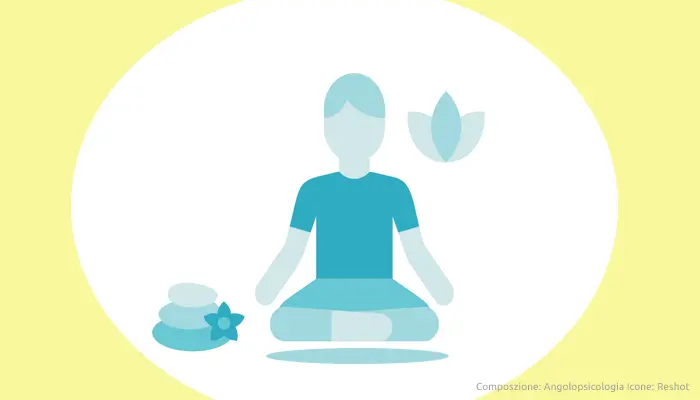
Meditation is an ancient practice that has begun to draw the attention of neuroscientists. In fact, we now know that not only helps to relax the mind and find peace, but it also has an extraordinary effect on the brain, affecting its structure and functioning.
Meditation prevents neuronal aging
A study at UCLA found that, if you want to take care of your brain and keep it young, meditation is a great tool. The researchers analyzed hundreds of brain images of people of different ages to discover the normal aging model, especially in the gray and white matter.
Then they analyzed the brains of 50 people who were on average 51 years old and who regularly have been practicing meditation for at least two decades. Later they compared the images of their brain scans with those of healthy people of the same age who never meditated.
So they made a startling discovery: the brains of people who meditated were on average 7.5 years younger than the rest of the participants. And a surprising result is that this effect was even more pronounced as people were elderly. That is, the more the time passed, the more meditation seemed to protect from aging and neuronal atrophy, increasing the gap between people who meditated and those that did not.
What happens in the brain as it ages?
Over the years, as with other organs, the brain gets older, it is producing a neural atrophy, i.e. a decrease in the size of the cells and dendritic shaft so it is more difficult to establish neuronal connections.
Studies have also shown that there is a decrease of the weight and the volume of the brain, an increase in the size of the grooves and a decrease of the thickness of the cerebral cortex. In addition, it is also produced a neuronal death and a decrease in the number of neurotransmitters, in particular the acetylcholine, which is also implicated in Alzheimer’s disease and the lack of which affects the memory.
All of these changes associated with aging are mainly responsible for the decline of intellectual and cognitive functions that occur in old age.
Keeping the brain young means delaying the typical changes of aging, so we’ll not only keep longer our cognitive functions, but we can also prevent the onset of neurodegenerative diseases.
Is it really so effective the meditation?
This is not the first study to show the effects of meditation on the brain. In fact, were made several meta-analysis in which were collected data from dozens of studies, one of which was conducted by researchers at the University of British Columbia who assumed the task of organizing the results found in 21 different previous studies that included 300 people who regularly practiced meditation.
These researchers concluded that in people who meditated were appreciated important differences in eight different areas of the brain:
– The anterior cingulate cortex, an area that not only is involved in the regulation of the heart rate and blood pressure, but also in decision-making processes and empathy.
– The frontopolar cortex, which is involved in self-awareness.
– The sensory cortex and the insula, associated with the perception of the body, both at exteroceptive land interoceptive levels.
– The hippocampus, related to the consolidation of memories.
– The orbitofrontal cortex and the anterior cingulate gyrus and middle areas related to the “ego” and to emotional regulation.
– The corpus callosum, an area that facilitates the communication between the hemispheres, essential to creativity.
In any case, unless you suffer from any of the side effects of meditation, something that happens to very few people, this practice is very beneficial as it allows to regain the psychological balance and serenity in everyday life, even helping you keep more attentive and relaxed.
Sources:
Luders, E. et. Al. (2016) Estimating brain age using high-resolution pattern recognition: Younger brains in long-term meditation practitioners. Neuroimage; 134(1): 508–513.
Fox, K, C. et. Al. (2014) Is meditation associated with altered brain structure? A systematic review and meta-analysis of morphometric neuroimaging in meditation practitioners. Neurosci Biobehav Rev; 43: 48-73.



